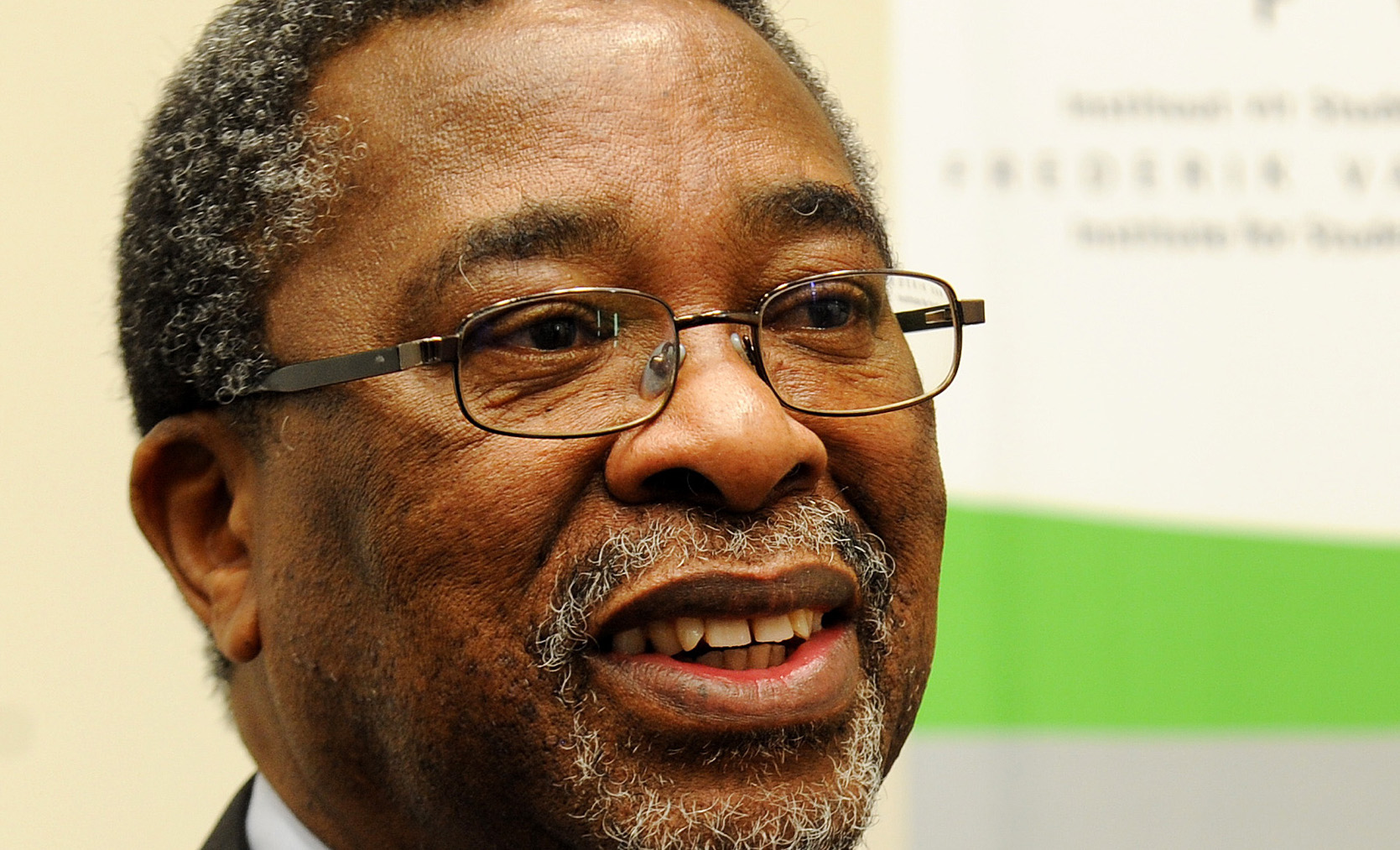The majority of South Africans have lost all confidence in the ability of the ANC leadership to provide them with a better life, according to sociologist, businessman and political analyst Moeletsi Mbeki.
Mbeki based his assessment on the events of the July riots and the result of the November 2021 local government elections.
The ANC had left largely intact the unequal economy it had inherited from the National Party.
This economy had been designed solely to serve the British colonialists and the minority, by extracting and exploiting South Africa’s huge natural resources using cheap black labour. He said this left the vast majority of hungry and angry black South Africans, who were on the margins of society, seeking radical change by any means necessary.
Beginning of the end
The ANC would not recover from the November 2021 local government poll, in which the party dipped to 45% of the national poll from the highs of 69% in the 2004 elections. This he told a gathering of professionals, civil servants and politicians in Durban during a dialogue hosted by Durban-based Xubera Institute for Research and Development, under the title “SA Now Faces A New Uncertain Future”, as well as in follow up questions by DM168.
“Let me remind you what happened in the November 2021 local government elections, in case you have forgotten. The results of those elections show that the black majority are no longer prepared to continue supporting the African nationalist in the form of the ANC... This means that in the future, the other parties can form a government without involving the ANC,” Mbeki said.
“If you look at other African nationalist parties that came to power in the 1950s and 1960s in other African countries, once they lose power, they never recover. The reason they never recover is that [once in power] they fail to replace the colonial economy, so the population loses confidence in them. The ANC, as I pointed out, has failed to replace the colonial economy with an economy that benefits the wider community.
“All the African nationalist parties, once they lose support of the people, they never recover, so they disappear. If the ANC loses the 2024 elections, as predictions suggest, it will be the beginning of the end for the ANC.
“It is now clear to the people that the ANC, in whatever form it comes, is unable to solve the country’s problems,” Mbeki said, adding that the parties that would replace the ANC would also fail unless they were able to replace the colonial economy with one that would benefit the majority.
The provocative sociologist said the Afrikaner nationalists – the National Party – had business people, landowners, the church, farmers, traders, artisans, tradesmen and tradeswomen within its ranks. The National Party ensured that when it gained power from the British, it taxed mining companies and invested in railways to bring farmers’ produce to the cities; in Afrikaner conglomerates and in parastatals to employ their own people. He said the Afrikaner nationalists used taxes to build transport networks such as railways and highways, ports and other infrastructure to benefit its elite.
The Afrikaner nationalists also hobbled the growth and development of the South African economy by constraining the development of the human capital of South African blacks through its misguided education policies and employment practices.
On the other hand, the African nationalists, the ANC, which had no landowners or people with levers of the economy within its ranks, kept intact that British colonial-created economy, which has further been de-industrialised since 1994.
The ANC used the taxes from mining and other sectors of the economy to support conspicuous consumption by the black middle class or elites.
The African nationalists, in the form of the ANC, had abandoned or betrayed their historical mission to serve the interest of the black majority, he said.
The African nationalists, too, had hobbled economic growth by not investing in quality education and upskilling the poor black majority, he added.
“Since 1994, the ANC has used its power to tax the rest of the economy in order to promote a consumption-driven economy for the benefit of the black middle class. That is why the black majority are still living in poverty.”
Mbeki said that Finance Minister Enoch Godongwana had praised the mining sector during his Budget speech, and said that it was responsible for phenomenal tax returns. Meanwhile, two Anglo American-owned mining companies were declaring billions in profits, which they distributed to their British owners and shareholders, at the expense of the South African economy.
“The economy of South Africa was designed and developed to serve the British, whether you [have] the National Party or the ANC [in power], it is still the same.
“That is why the majority of South Africans are living in poverty.
Re-industrialise
“The way forward is that we must re-industrialise our own country. What we are doing today is digging out minerals, sending them to England to be sold to the benefit of the British who own our mining companies like Anglo American, which used to be South African-owned but is now British-owned. They are digging our minerals, selling them and pumping billions in profits to benefit the British economy. We must change that so that our economy is able to benefit South Africans and employ the 70% of the youth who are currently unemployed.”
Mbeki said recent statistics indicated that the South African civil service was the highest paid in the developing world, higher than most countries whose wealth was far higher than that of South Africa.
To illustrate his point, he said most of the South African state-owned companies were in shambles, wasting billions and failing to meet their mandate. Yet some executives and managers were raking in millions in undue remunerations and benefits.
The poor masses were on the verge of unleashing a violent uprising against the ruling elite, unless the country changed its trajectory, re-industrialised and accommodated the poor and angry masses, including the 70% of the youth who were unemployed.
Mbeki said a report by a high level panel appointed by President Cyril Ramaphosa to investigate the July riots and violence found, among others, that there was a weakness in state institutions such as the police, intelligence and others as a result of being hollowed out.
It also found high unemployment, particularly among the youth (and no practical and consistent plan by the government to address this). Inherited high levels of poverty and the state’s lack of planning left many poor people living in grinding conditions in shanty towns around urban centres. The report also stated that State Capture and corruption at all levels of government were responsible for the unrest.
The black majority were rejecting the ANC at the polls because the party had diverted taxes towards conspicuous consumption, benefiting the African elite instead of developing the economy and investing in human capital and other measures, Mbeki said.
“The black majority are asking themselves ‘what are we benefiting from this economy’ and are rejecting the ANC at the polls,” he said, adding that the party was incapable of self-correcting and reversing its decline.
Apart from mining companies and their shareholders, a small group of elite South Africans – between 10% and 12% of the population who earned more than R60,000 a month – were benefiting most from the wealth of the country, Mbeki said.
Unless the pool of beneficiaries was vastly increased and accompanied by the mass skilling of the population, the country would not develop optimally and would instead remain on the precipice.
He said South Africa, under apartheid, once sent troops to South Korea to protect that country from Communism. Yet today, South Korea’s economy was tenfold that of South Africa because the South Asian nation had spent its resources on industrialising, developing its human capital and growing its economy optimally instead of diverting its resources to the benefit of the ruling elite.
It was a myth that South Africa’s minerals were endless and that the country would forever benefit from these natural endowments. “Once you dig out these minerals, they don’t return. South Africa was once the biggest gold producer in the world; today it is seventh. We have to start to re-industrialise. We have got to start developing this economy beyond mining.”
The country was fortunate to have untapped reserves of skilled professionals who could help South Africa develop an alternative economy that would embrace the majority and create much-needed jobs, he said.
Looking for messiahs
Asked what he thought of the Ramaphosa presidency, Mbeki said: “We in South Africa are [always] looking for messiahs and there are people who put themselves forward to be the messiahs. The reality is that the ANC is a 110-year-old institution. So as an institution, that’s how the ANC operates. It is not governed by individuals, is not regulated by individuals, and it is not going to be failed by individuals.”
The ANC was a party of the black middle class which was benefiting from the economy in its current form. “The black middle class knows that everybody has to make sacrifices to change this economy and it is not prepared to do that because it is benefiting from it. The black middle class feels that its interests are best served by retaining the British colonial-created economy that thrives on mining and cheap black labour and they want to keep it that way.
“So it doesn’t matter whether Cyril Ramaphosa is the president, Thabo Mbeki is the president or Jacob Zuma, it is still the same. The ANC is an institution that serves the interests of the black middle class,” said Mbeki. DM168
This story first appeared in our weekly Daily Maverick 168 newspaper which is available for R25 at Pick n Pay, Exclusive Books and airport bookstores. For your nearest stockist, please click here.

Politics
As a doomed ANC clings to our colonial economy, a violent uprising looms, warns analyst Moeletsi Mbeki




